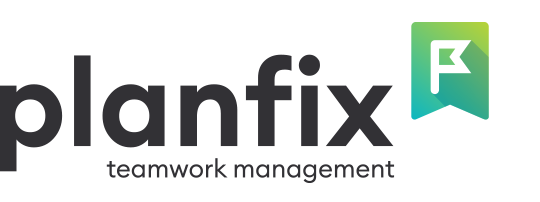
Navigating today’s highly competitive and fast-paced environment can be particularly challenging for small businesses. With limited resources and intense competition, small business owners must be flexible and respond quickly to market changes and customer demands. One of the most powerful tools for achieving this is a customer relationship management (CRM) system. A sound CRM system can automate repetitive tasks, streamline workflows, and synchronize teamwork, turning chaos into order. However, small businesses, including system administrators and analysts, often have limited IT resources, software, hardware, and personnel budgets. In this article, we look at what makes a CRM system ideal for small businesses and provide practical tips for choosing the most cost-effective solution.
CRM Benefits for Small Business
Implementing a CRM system can benefit small businesses, significantly improving efficiency and customer satisfaction across departments. Let’s examine how different teams in a small business can use CRM functionalities.
Simple Setup and Configuration
A CRM system should be easy to install and set up without extensive IT support. SaaS solutions such as Planfix are an excellent choice as they require no code customization and offer numerous resources such as help documentation, blogs, and free support services. This means that even small businesses without an in-house IT team can be up and running quickly. For example, a small retail store can use Planfix to manage customer orders and inventory without hiring IT experts.
User-Friendly Interface
An intuitive user interface is crucial for a smooth implementation. Planfix offers a training academy, extensive support services, and practical case studies to help users quickly get accustomed to the system. For example, a marketing team can benefit from easy-to-navigate dashboards that allow them to track campaign performance and customer engagement without a steep learning curve.
Flexible Licensing Options
Small businesses benefit from adaptable licensing models. Planfix, for example, offers a free version and the option to purchase individual licenses to tailor the software to the company’s needs. This flexibility ensures that a small graphic design studio can start with a minimal budget and add more features and licenses as the business grows.
Transparent Pricing
It’s essential to avoid hidden costs. Unlike competitors, Planfix offers transparent pricing with no additional fees for support or separate product purchases. This transparency is especially beneficial for small businesses that need to monitor their finances closely, such as a local coffee shop that needs to account for every dollar spent on supplies.
All-in-One Solution
For small businesses, an all-in-one CRM that serves multiple departments—from sales to operations—is ideal. Planfix integrates various functions into one platform, so no additional customization is required. For example, a small consulting firm can use Planfix to manage customer appointments, invoices, and project management in one place, streamlining its processes and reducing the complexity of managing multiple systems.

Routine Tasks Automation
Automating routine tasks such as follow-up emails, scheduling, and data entry saves valuable time and reduces human error, allowing employees to focus on strategic activities that drive business growth. Planfix offers powerful automation features to handle repetitive tasks efficiently. For example, a real estate agency can automate follow-up emails to potential buyers, ensuring timely communication without manual intervention.
Flexible Analytics and Reporting
CRM systems offer powerful analytics and reporting capabilities that provide insights into customer behavior, sales performance, and the business’s overall health. These insights help make informed decisions and identify opportunities for improvement. Planfix provides detailed reports and dashboards for various aspects of the company. For example, a fitness center can track membership and attendance trends to develop better planning and marketing strategies.
Document Management
Efficient document management is an important feature that ensures all business documents are organized and easily accessible in the CRM. A well-organized document management system is particularly beneficial for a law firm that needs to keep customer contracts, case files, and correspondence organized and readily available.
Built-In Communication Tools
Multi-channel communication tools, including integrated chat, improve team collaboration and customer interaction. This feature benefits an e-commerce business by enabling seamless communication between the customer service team and customers across different channels, ensuring quick resolutions and high customer satisfaction.
Efficient Team and Customer Communication
A CRM system centralizes all communication channels, facilitating team collaboration and consistent customer communication. Integrated chat and multi-channel communication tools ensure that no message is overlooked and that responses are prompt. For example, a small event planning agency can manage communication with suppliers, provide client updates, and coordinate internal team collaboration through one platform.
Time Tracking
Planfix has integrated time tracking, which is beneficial for managing projects and employee productivity. A digital marketing agency can use this feature to track time spent on client projects to ensure accurate billing and better time management.
Improved Client Data Organization
Effective organization of customer data is critical for small businesses. An integrated CRM consolidates all customer data in one place, making it easily accessible and manageable, ensuring all team members have up-to-date information when dealing with customers. For example, a veterinary clinic can keep detailed records of patient visits, treatments, and communications to ensure continuity of care.
Better Targeting and Segmentation
With a CRM system, companies can segment their customer base and target specific groups with tailored marketing campaigns, thereby improving the effectiveness of their marketing efforts and increasing the likelihood of conversion. For example, an online boutique can segment customers based on their purchase history and preferences, and send personalized promotions to increase sales.
Learn more about Dynamic Customer Segmentation in Planfix
By utilizing these CRM advantages, small businesses can increase their competitive advantage and make their operations more efficient. Planfix’s robust features are tailored to different needs, making it a versatile tool for businesses across industries.
Essential CRM Features for Small Businesses
Small businesses need implementations with certain key features to achieve the benefits of CRM systems. As the company grows, it may require additional features, but the following are essential for small businesses.
Free Trial

It’s essential to test the CRM system before you commit to it, and a free trial allows businesses to explore features and functionality. Planfix offers a comprehensive trial period during which all functions are available.
Contact Management Feature
Efficient contact management is one of the most crucial CRM features. It helps companies track customer data, interactions, and history and makes all relevant information available when needed. This feature streamlines communication and improves customer service.
CRM Email Tracking
Email tracking allows companies to monitor customer email interactions, ensuring timely follow-up and effective communication. By tracking opened and replied emails, companies can measure customer engagement and improve their communication strategies.
Other CRM Communication Tools
CRM systems should offer various communication tools, including telephony integration, to optimize customer interactions. Integrated communication tools ensure all customer interactions are logged and accessible, providing a holistic view of customer relationships.
Lead Management
Managing leads effectively is essential for converting prospects into customers. A CRM system should provide robust lead management features to track and nurture leads through the sales pipeline to avoid missed opportunities and increase conversion rates.
Client Data Analytics, Reports, and Dashboards
Detailed analytics, reports, and dashboards help organizations gain insights into their performance and make data-driven decisions. Detailed reports provide important business information, while clear and visually appealing charts and graphs enable small businesses to optimize their operations and strategies.
Third-Party Integrations
A good CRM system should easily integrate with other tools and platforms to improve functionality and optimize processes. Integrations with popular tools such as email services, marketing platforms, and accounting software extend the capabilities of the CRM system and simplify workflows.
Automation
Automating business processes is key to increasing efficiency. A CRM system should offer extensive automation features to handle repetitive tasks, such as sending follow-up emails or updating customer records, freeing up time for more strategic activities.
Document Management
Managing documents within the CRM system ensures that all business documents are organized and easily accessible. This CRM feature enables seamless document sharing and collaboration, improving efficiency and ensuring all team members access the latest information.
CRM Systems for Small Business
There are different types of CRM systems aimed at small businesses. Here are a few examples:
- All-in-One CRM Solutions: These comprehensive systems offer features specifically tailored for small businesses, such as automation, document management, and time tracking, all on a single platform.
- Modular CRM Platforms: These CRMs provide various modules for different business needs, allowing companies to purchase and integrate only the features they need for complete customization.
- Project Management-Focused CRMs: These systems are known for their strong project management capabilities and include CRM functionalities suitable for small businesses.
- Enterprise-Grade CRMs: These robust solutions have extensive features and customization options that can be more complex and thus more suitable for larger companies than small businesses.
- User-Friendly CRMs: These systems are designed for ease of use and often include a free version with basic features, making them ideal for small businesses just starting out with CRM implementation.
Planfix is an all-in-one CRM solution that offers a wide range of features tailored specifically for small businesses, including automation, document management, and time tracking.
Zoho CRM is a popular CRM platform with different modules for various business needs, though the full range of features may require the purchase of separate products.
Monday.com is known for its project management features and offers CRM functionalities suitable for small businesses.
Salesforce is a robust CRM solution with extensive features and customization options, but it is ideal for larger companies due to its complexity and cost.
FAQ about CRM for Small Business
What Data Do I Need Before Choosing a CRM for Small Businesses?
When choosing a CRM, you should consider factors such as the size of your business, your specific needs, your budget, and the CRM’s features and integrations.
Assessing how the CRM will solve your problems and improve your business processes is essential. An adequately integrated CRM in a small business not only automates processes but also improves the efficiency of teams.
Is CRM for Small Business Different from CRM for Enterprise?
Although the core product may be the same, the plans differ. Small businesses usually only need basic features at first, while enterprises may require advanced features and customization.
Planfix is a flexible CRM that caters to both small businesses and enterprises.
How Much is a CRM for a Small Business?
CRM prices vary depending on the number of users, features, and limitations. Basic plans cost $12 per user per month, with advanced plans costing more.
Planfix offers flexible pricing options, including a free version and scalable licenses.
Conclusion
Choosing the right CRM system is crucial for small businesses looking to improve their operational efficiency and customer relationships. By understanding the key features and benefits of CRM systems, small business owners can make informed decisions that suit their needs and budget. Planfix offers a comprehensive and flexible CRM solution tailored to small businesses, providing all the essential tools for success. Start your free trial of Planfix today and experience the transformative power of efficient customer relationship management.
Test all of its features and improve your business processes!



